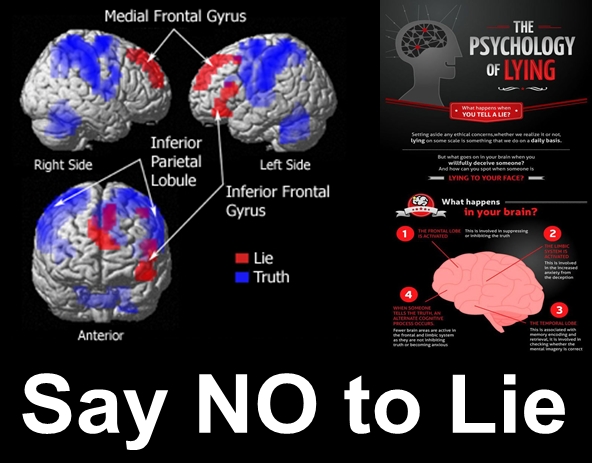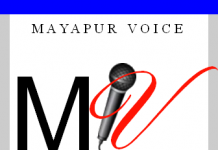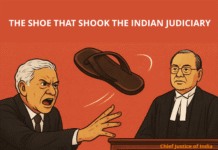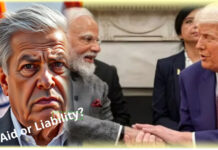It is said that better to be hated for what we are than loved for what we are not. What does this imply? No one likes to be hated, but if our popularity is based on untruth, or lies, then it is better to trash such cheap popularity gained at the cost of truth. Unfortunately today, for the majority, lying has become a way of life. Small lie or big lie, a lie is a lie. The question is of the limit. What degree of lie amounts to dishonesty? Is all lies dishonest? What about lying for a good cause? Is telling your boss that you were stuck in the traffic when you got late due to your kid’s ill health dishonesty?
“So what if I lie, I am not dishonest”, one may argue. Someone else may be comfortable even at being called dishonest so far his work is accomplished. The argument could be, it is after all about believing or not believing in ethics, and if someone does not believe in being ethical, religious or God-fearing, he can lie and be dishonest at his will and still not get punished.
Hmm… Fortunately, being ethical and religious is not whimsical as one may wish it to be. A first of its kind empirical evidence shows that a habit of speaking apparently harmless lies soon turns into a habit of telling bigger lies. Such lies don’t need more time to turn into scandals, and we all know what happens when sandals are exposed.
By studying brain scans of those lying during the experiment, researchers observed that each new lie resulted in smaller and smaller neurological reactions, especially in the amygdala, the brain’s emotional core.

“We need to be careful of small lies, because even though they may be seemingly small, they can escalate,” said Neil Garrett, first author of the study. “It may be beneficial to perhaps nudge people away from even small acts of dishonesty.”
Take the recent scandal at Wells Fargo bank, where thousands of employees were starting accounts without their customers’ knowledge. They were initially motivated by an aggressive incentive plan to improve employee performance, and management’s poor decision to comply with the sales quota instead of pushing back on it eventually led to the dismissal of more than 5,000 staffers.
Or consider the Bernie Madoff Scam, a long-term Ponzi scheme that prosecutors say started in the 1970s. The compounding lies it took, both to sustain the fraud and continue adding new clients to fill Madoff’s coffers, are examples of what Garrett described as “minor dishonest decisions” snowballing into big lies over time. To see how escalating lies affect the brain, Garrett invited 80 participants to come to a lab in London, where they were paired up with someone whom they thought was another participant. In fact, the second participant was an actor helping facilitate the experiment. The pairs then had to play a game in which they guessed the amount of money in photos depicting jars of pennies.
The researchers made two important observations. The first: Lies participants told got larger and larger over the course of the hour-long game, but only when the participants lied for their own benefit. This finding means that in a constant environment with the same incentives, repeated lies increase over time if it helps the person who is lying. Secondly, the parts of the brain most strongly linked to emotions lit up at the first few lies, but over time and with more lies, these regions responded less and less to the dishonesty.
This finding suggests that the parts of the brain that regulate our emotions become desensitized to repeated lies over time. “What our results may suggest is that if someone is repeatedly engaging in dishonest behavior, it’s likely that the person has emotionally adapted to their own lie and lacks the negative emotional response that would usually curb it,” Garrett said. (Source http://www.huffingtonpost.in…small-fibs-lead-to-biglies…)
It is an undeniable fact that from religious point of view, lying is condemned. Spiritualists say the same thing. As of today, lie is considered wrong even in the eyes of laws. Every lie diminishes your piety and when piety is diminished, the person lying loses his or her good fortune, either rapidly or gradually, depending on the magnitude of the lie and its effect on oneself and others.
Strictly speaking, lying for so-called good also diminishes one’s piety. Truth never harms in real sense of the term. It may appear sometimes that by speaking truth a person caused harm to someone else and under such circumstances one may try to justify his lie. But according to the law of karma, no one suffers due to someone else’ action. In other words, the person apparently causing difficulty to others by speaking truth is only being instrumental. On the other hand, if he prefers to lie in order to save someone difficulty, that person will anyway go through his destined hardship through some other means and the person lying will be held responsible for his lie.
“In this age, Kaliyuga, truth is the only aspect of dharma (roughly translated as religion) which has survived and holds value in any civilized society. This is the reason court cases are filed and won over what is truth and what is untruth, or lie. Other aspects, like mercy, cleanliness and austerity, have all been practically finished by the acts of meat eating, illicit sex life and intoxication respectively.” (Art of speaking bitter truth – Mayapur Voice)
They say it is better to make someone cry by saying truth than making someone smile by saying a lie. This does not mean we go around making people cry by saying truth that hurt them. The idea is to condemn lies.
Chanakya Pandit advises to avoid speaking bitter truth. This advice, however, is not meant to encourage cover-ups. When truth, no matter how bitter, is in the public interest, it must be spoken, especially when you are in a responsible or influential position and when your statement affects others. Or else it amounts to selfishness and encourages hypocrisy in society. It may not be easy though to ascertain what is good in public interest and what is not, but by taking guidance from bona fide spiritual masters one can easily discriminate between the two. Lying does not only deform your brain pattern, it permanently ruins personal integrity over a period of time. Therefore it is wise to say no to lies. Let truth prevail. It will benefit both you and the world.



























